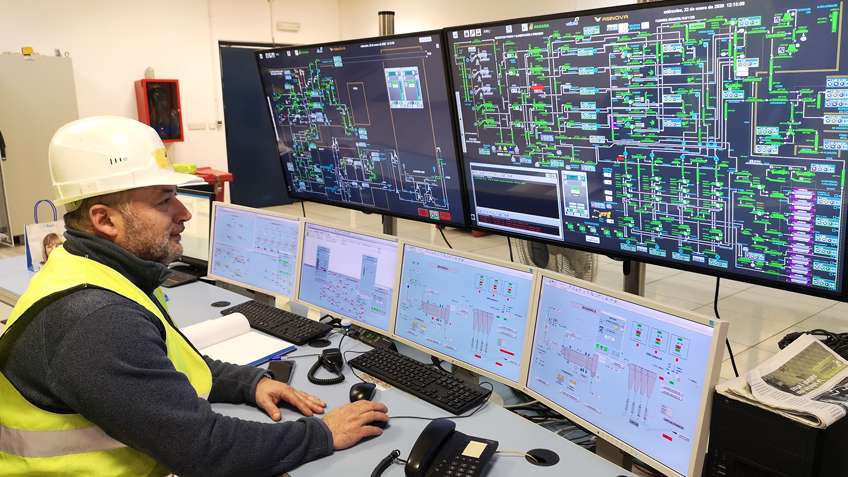Walking through history
Travelling the last stretch of the Camino de Santiago (Way of St James), from Sarria to Santiago de Compostela, finds you in the rural heart of Galicia (Spain). The route, which is about one hundred kilometers long, is known as the French Way, and is traversed by more than 300,000 pilgrims every year.
They enjoy nature while walking through oak forests and pastures where rubia gallega and friesian cows graze peacefully. What a great place to breath pure air! Inhabited in the past by Celtic tribes, in the Middle Ages the region became a place of cultural exchange between the Iberian Peninsula and the rest of Europe.
Further north from this pilgrimage route, surrounded by nature, lies the town of Cerceda, where Valtalia looks after the environment in the region by means of urban waste management and processing, for both yellow and black organic sacks. The facility recycles 500,000 to 550,000 tons of waste per year from more than 2.2 million inhabitants in the region, but first and foremost, it enables Galicia to be a reference worldwide on environmental protection.
For this purpose, in Cerceda, Valtalia operates a group of waste processing plants. However, these premises are too small for the new strategy scheduled by the managers.
Environmental protection
That’s the key point: to enable most of the waste in Galicia to be recycled for other usages, thus preserving the environment in the region and protecting landscapes like those seen by the pilgrims along the Camino de Santiago. However, this required the Cerceda premises to be expanded. In order to meet these goals, the owner organization management decided to put into operation a new 15,000 m2 plant in Cerceda to recover materials contained in black sacks.
A public tender was announced for the construction and operation, and the Galician company Valtalia won it, for a period of fifteen years. Valtalia received clear indications about the task at hand, including full automation of the entire process. For the implementation, the company had the support of Asinova, a Galician company that specializes in programming and industrial automation.
“The goal was to put into operation a facility fitted with more than 500 control units, overseeing conveyors, trommels, crushing and sorting machinery, and more than 150 variable-frequency drives, controlled by industrial communications,” says Jorge Guinarte, CEO at Asinova.

